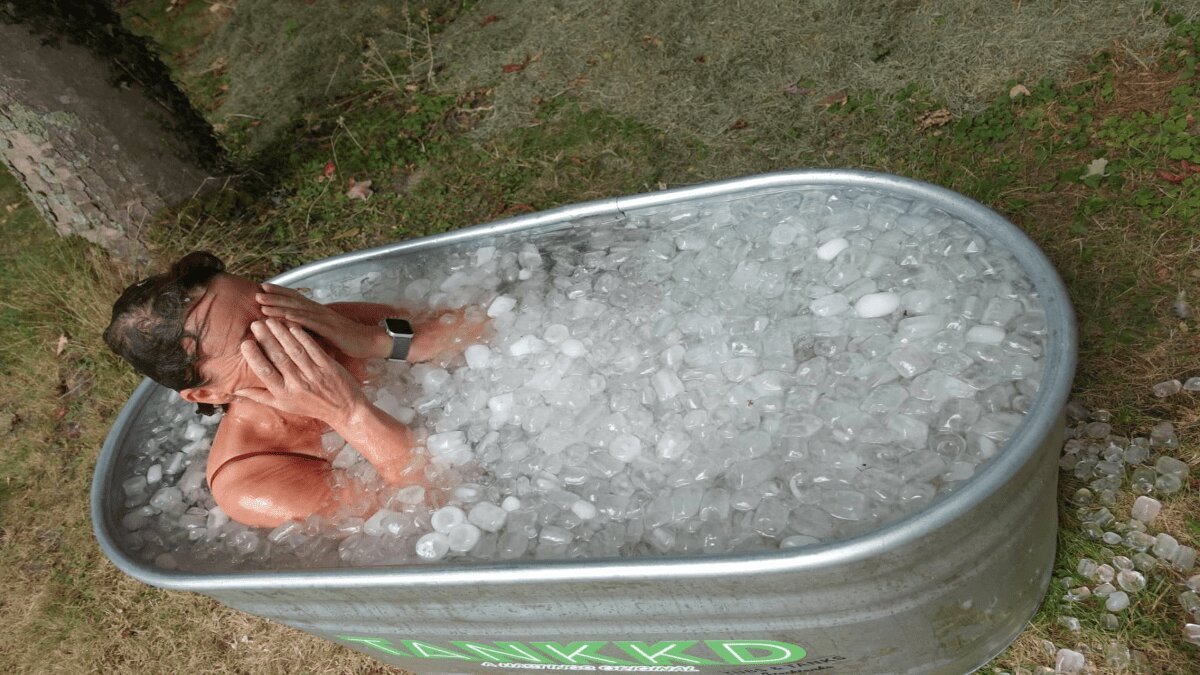Ice baths, also known as cold plunges, have gained popularity for their purported health benefits, from reducing muscle soreness to boosting circulation. However, while many people swear by the invigorating effects of icy immersion, it’s not necessarily suitable for everyone. Before you dive headfirst into the frosty waters, let’s take a closer look at who should think twice before taking the plunge.
- Heart Conditions: Individuals with heart conditions, such as heart disease or arrhythmias, should exercise caution when considering ice baths. The sudden drop in temperature can cause blood vessels to constrict, potentially increasing blood pressure and putting added strain on the heart. If you have a heart condition, it’s essential to consult with a healthcare professional before attempting an ice bath.
- Hypertension: Similarly, individuals with high blood pressure, or hypertension, may want to steer clear of ice baths. The vasoconstrictive effect of cold water immersion can exacerbate hypertension, leading to a dangerous spike in blood pressure. If you have hypertension, it’s crucial to monitor your blood pressure regularly and discuss the potential risks with your doctor before attempting an ice bath.
- Respiratory Conditions: People with respiratory conditions, such as asthma or chronic obstructive pulmonary disease (COPD), may find that cold water immersion exacerbates their symptoms. The shock of cold water can trigger bronchoconstriction and make breathing more difficult, potentially leading to respiratory distress. If you have a respiratory condition, it’s advisable to consult with your healthcare provider before attempting an ice bath.
- Raynaud’s Disease: Raynaud’s disease is a condition characterized by exaggerated sensitivity to cold temperatures, resulting in numbness, tingling, and color changes in the fingers and toes. For individuals with Raynaud’s disease, exposure to cold water can trigger a severe vasoconstrictive response, exacerbating symptoms and potentially causing tissue damage. If you have Raynaud’s disease, it’s essential to avoid ice baths and other cold water immersion activities.
- Open Wounds or Infections: It should go without saying, but individuals with open wounds or infections should avoid ice baths altogether. Immersing open wounds or infected areas in cold water can increase the risk of complications, delay healing, and introduce harmful bacteria. If you have any cuts, abrasions, or infections, it’s crucial to keep them out of cold water and consult with a healthcare professional for appropriate treatment.
While ice baths can offer numerous benefits for many people, they’re not suitable for everyone. Individuals with certain medical conditions, including heart conditions, hypertension, respiratory conditions, Raynaud’s disease, and open wounds or infections, should exercise caution or avoid ice baths altogether. As always, it’s essential to consult with a healthcare professional before attempting any new wellness regimen, especially one as chilling as an ice bath. So before you take the plunge, take a moment to consider whether it’s the right choice for you. Stay safe, stay warm, and chill out responsibly!


